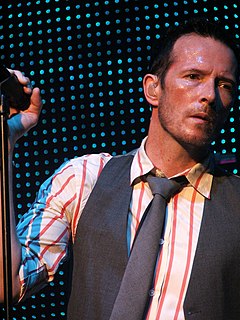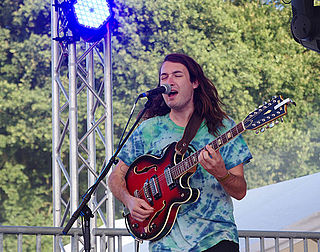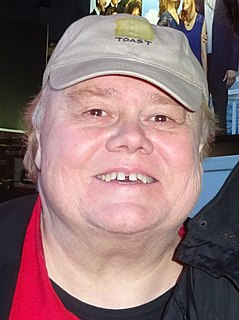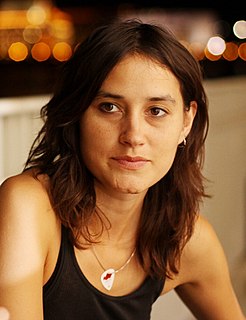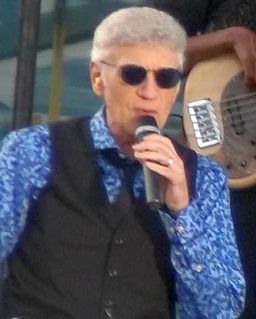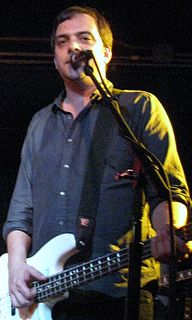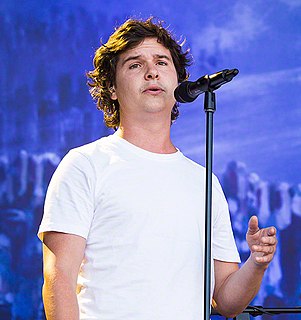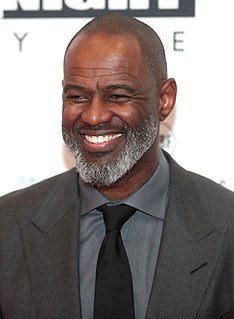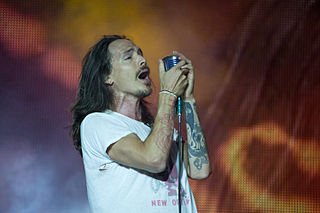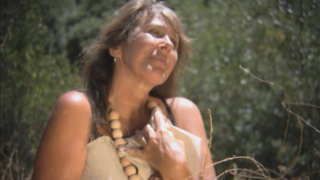A Quote by Ben Gibbard
Anything was better than going to work. All those early tours before we made any money were more like vacations. I don't think it was until 2001 that we pulled our heads out of the sand and were like, "What are we doing?" I don't think Chris realized he was in a band until 2001. He all of a sudden woke up one day and realized he was in a band. He thought he was just recording my solo project. Three albums later, we're in Baltimore trying to figure out what to do with ourselves.
Quote Topics
Related Quotes
When I formed the band and created the Wildabouts with my friends, we decided we wanted to make a band-sounding album, a rock-sounding album. I made two solo albums before that were more experimental albums, and I think that they didn't really resonate with my fan base because they were too out-there, too artsy.
The story of our band is that we were this relentless touring band in those early years. We were leaving day jobs and going off on the road and having fun and seeing the country for the first time. We were playing Chinese restaurants and basements and record stores and houses. We were crashing on floors and it was all new and exciting. It was like a vacation. It didn't feel like work. I couldn't wait to go on tour back then. I would be sitting at my day job or my apartment, just itching to go. There were so many adventures that were about to happen.
We found ourselves becoming more serious about playing music than our friends were - or just more committed and had more meaningful connections. I realized then that I would probably be playing in bands for the rest of my life; that that's what made me happy. Even though it's awesome that people are paying attention - buying records or selling shows out - I never have that conscious thought about, "this is going to be the band that will tour the world."
I made 'Desert Moon' and when I made those solo albums, I was trying not to be Styx, because I thought, 'That belongs to us.' So, I made different kinds of solo albums that were not dipping my hand back into the magic Styx jar and pulling out all the tricks - because bands, they have tricks, don't they? That's what makes them different.
I think ultimately what you really want is a few people within any label that are into the band enough to really work on it every day for a long time and to actually try a little bit. But obviously, the major labels have more money to spend, so if they feel like spending it, they have bigger resources there when you need them. It doesn't always necessarily translate into them doing a better job for a band, but I think especially if you're playing the game of commercial radio and making videos and stuff like that, that's sort of an expensive proposition.
It was 1999, and we were building a way for college kids to create online profiles for the purpose of sharing... with employers. Oops. I vividly remember the moment I realized my company was going to fail. My co-founder and I were at our wits' end. By 2001, the dot-com bubble had burst, and we had spent all our money.
I went back and listened to the first three albums I made and tried to figure out what was special about them, why people keep going back to them. I think it was because I didn't know what I was doing. I had no idea if they were going to play it on the radio or anything. All I did was write songs, so that's what I got back to.
All those experiences were a chance to learn more about music. Playing with the Valley band is like such a "live" band. I mean, really, in many ways Bright Eyes is really a studio project. We form bands to tour, but it really is - you know, we take the songs and we figure out how to decorate them and it's all in the studio, we build the songs that way. Whereas Mystic Valley Band was the exact opposite, where everybody knows what they are gonna be playing on the song and there's sort of a general stylistic approach, and then it's just plug in and play.

